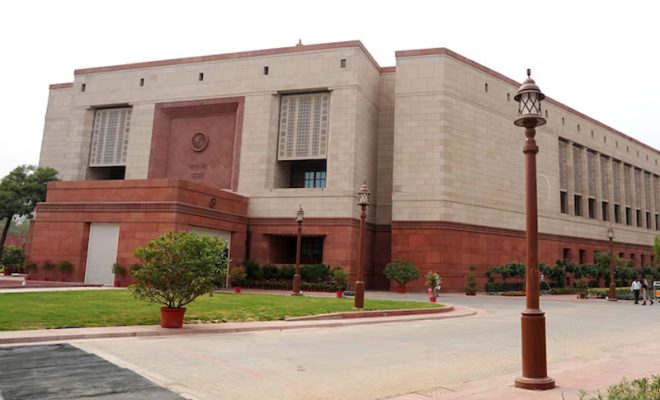Waqf (Amendment) Bill 2024: Key Changes, Controversies & Debate

A new front is opened in the war between the ruling party and the opposition, as Union Home Minister Amit Shah fought for the Waqf (Amendment) Bill 2024, trying to rebut what he called “foul propaganda by Parliament members of the Opposition.” On Wednesday, the Lok Sabha saw a heated debate when Amit Shah tried to rebut the opposition’s strong statements. Shah argued that opposition members of parliament had propagated disinformation either knowingly or unwittingly on account of political considerations.
Further explaining the definition of Waqf, Shah stated:
“Waqf is a donation for charity relating to religion in the name of Allah. Hence, it is a permanent charitable endowment, where the donor does not want it back. However, Waqf can only be declared on one’s personal property and not on government land.”
Shah continued to assert that any non-Muslim appointment to the Waqf board was not possible, thereby negating allegations from the opposition that the government was going to interfere with religion.
“We have no desire to appoint non-Muslim members to the Waqf Board. There will be no interference in the religious affairs of the Muslim community. The opposition is only protesting for political gains,” he stated.
Opposition Criticism and Political Tensions
Gaurav Gogoi, from Congress, gave it all against the NDA government. He charged the ruling party with trying to undermine the Constitution, divide society, and target minority communities.
“This Bill is an attack on the basic structure of the Constitution. It seeks to destroy democracy, defame minorities, and disengage them,” Gogoi said.
He then raised the question of supposed religious freedom when offering instances in states ruled by the BJP where people were restricted from offering namaz on roads.
Later on, Union Minister Kiren Rijiju insisted that the Bill does not harm any religion or the administration of mosques. The tensions remained high, and opposition parties moved a motion of adjournment in the Rajya Sabha, upon which the government went ahead to pass the Immigration and Foreigners Bill, 2025.
Why is the Waqf (Amendment) Bill so controversial?
The bill provoked protests from across the country. The opponents cited the important changes as undermining the very basis of Waqf governance. Some of the most talked-about provisions are the following:
- Appointment of Non-Muslim Members: The Bill provides for the appointment of at least two non-Muslim members on the Waqf board of the concerned states by non-Muslim members.
- Non-Muslim CEO of Waqf Board: Apart from the new practice, this amendment allows a non-Muslim to be appointed as the Chief Executive Officer (CEO) of the Waqf board.
- Rank of District Collector for the Waqf Property Disposal: Actually, the District Collector shall be the final judge of whether a property under dispute is Waqf or government.
- Abolition of ‘Waqf by User’: The bill repeals the old concept of “Waqf by user,” which recognized properties as Waqf based on historical or customary use.
- Central compulsory registration of Waqf properties: Every Waqf property must be registered in the central database within six months of the enforcement of this law.
- Removal of Finality of Tribunal’s Decision: The decision of Waqf Tribunal was earlier final. This has been removed though, and hence the fear for litigation.
What is further?
The Waqf (Amendment) Bill, 2024, remains one of the most talked-about legislations for about 100 days, already getting deeply engrossed with immense support and equally amounting criticism. While the government flags off on their words that these changes are going to bring of transparency and accountability, critics see that as an evangelistic way to enter and seize Waqf properties by Muslims and compromise their population representation in Waqf boards.



